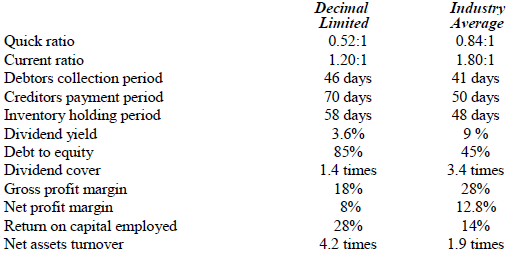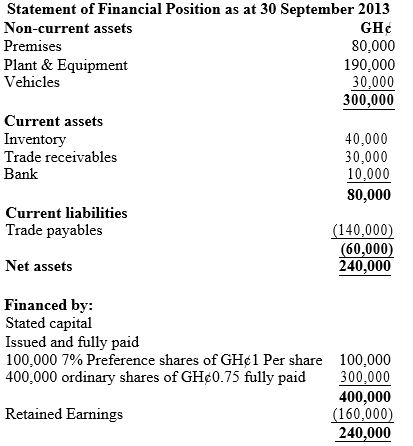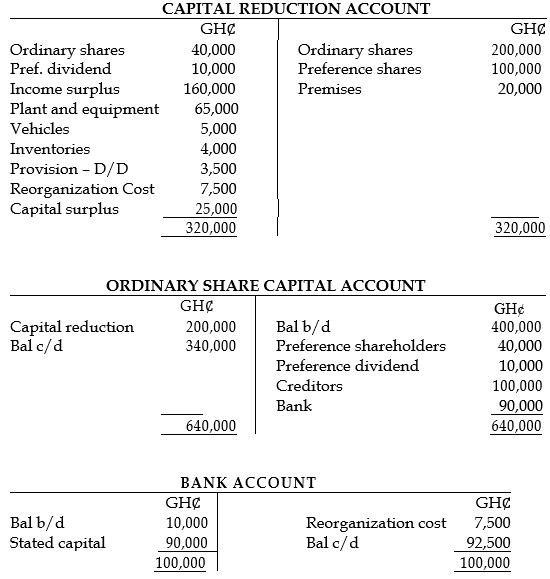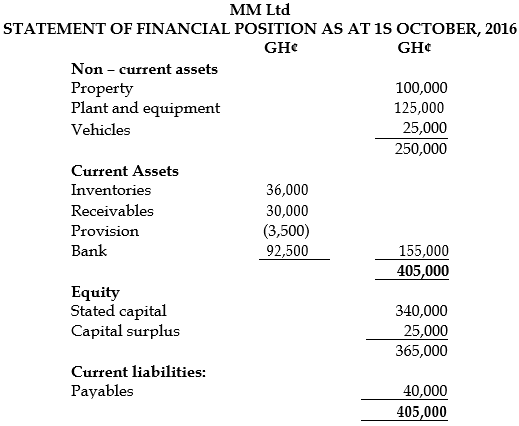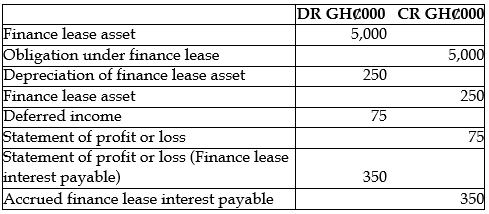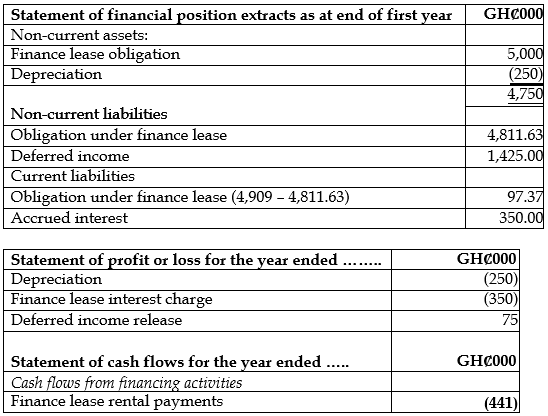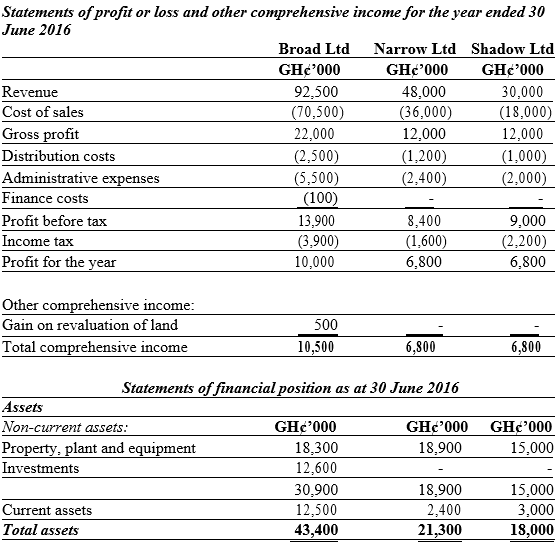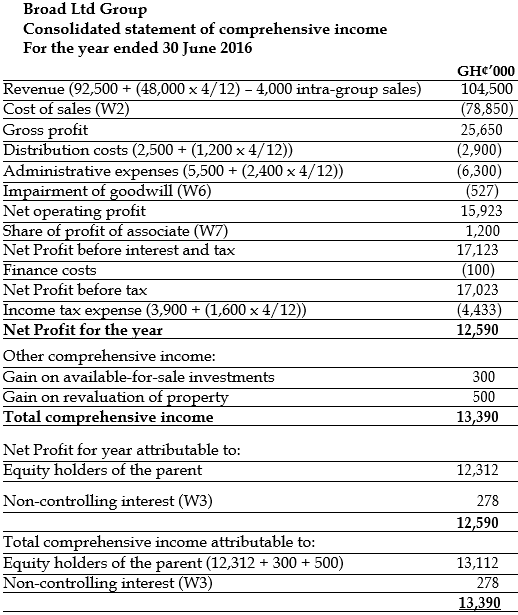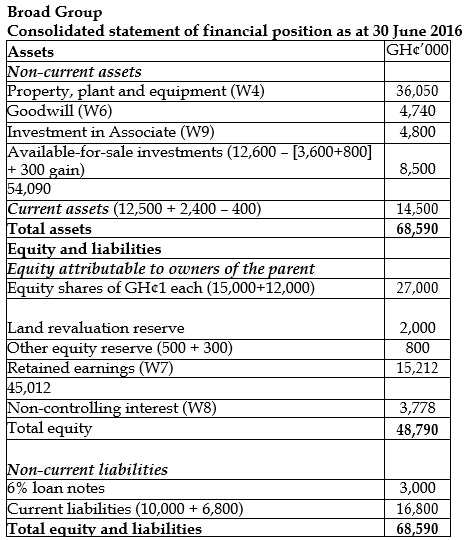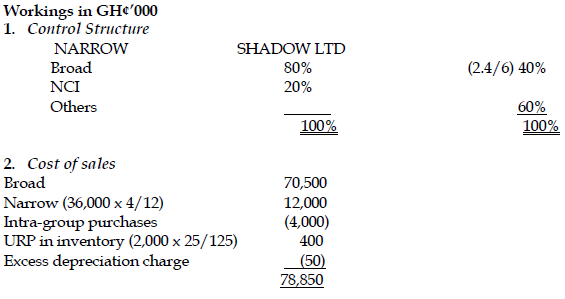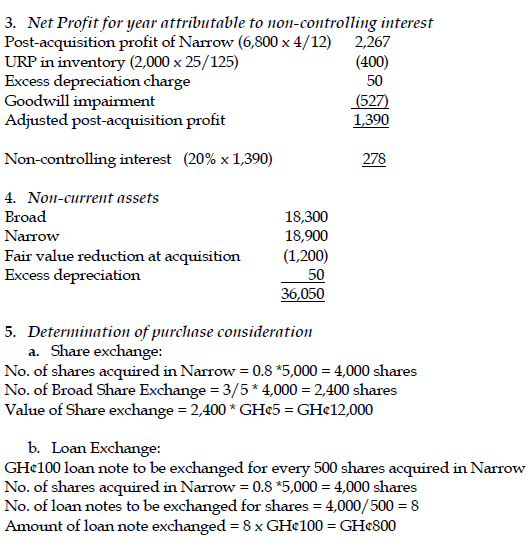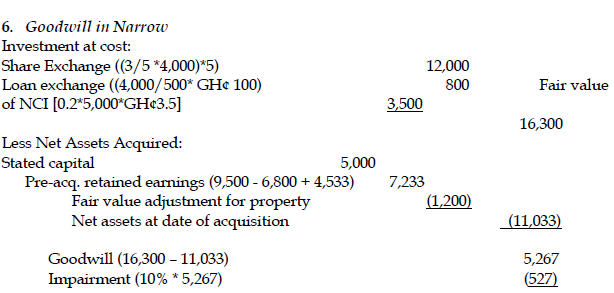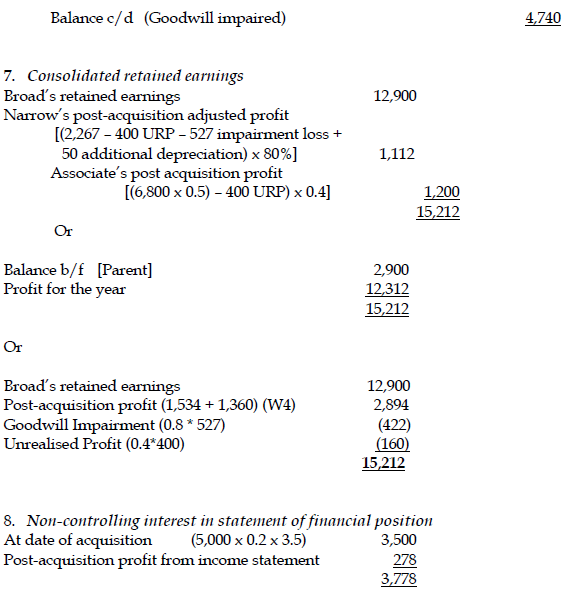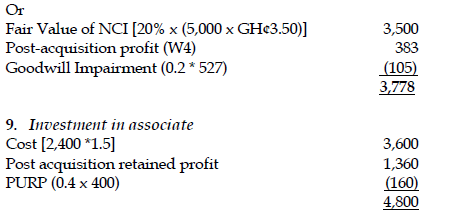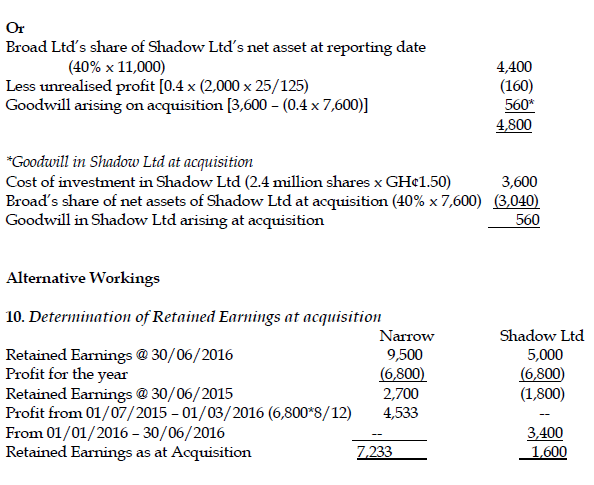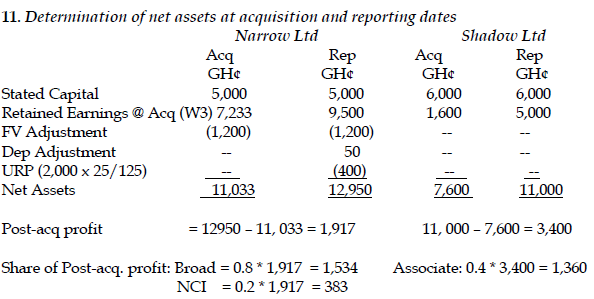Nov 2016 Q5 a&b
a) Mordern Technology Ghana Limited plans to upgrade its production process and the directors believe that technology-led production is the only feasible way to remain competitive in recent times. However, the company operates from a leased property and the leasing arrangement was established in order to maximise taxation benefits. Surprisingly, the financial statements have not shown a lease asset or liability to date.
A new financial accountant joined Modern Technology Ghana Limited just after the financial year end of 31 July 2016 and is currently reviewing the financial statements to prepare for the upcoming audit and to begin making a loan application to finance the new technology.
The financial accountant believes that the lease relating to both the land and buildings should be treated as a finance lease but the finance director completely disagrees. The finance director does not wish to recognise the lease in the statement of financial position and as a result wishes to continue to treat it as an operating lease. The finance director believes that the lease does not meet the criteria for a finance lease, and it was made clear by the finance director that showing the lease as a finance lease could adversely affect the loan application.
Required:
Discuss the ethical and professional issues which face the financial accountant in the above transaction. (5 marks)
View Solution
A lease is classified as a finance lease if it transfers substantially all the risks and rewards incident to ownership. All other leases are classified as operating leases and classification is made at the inception of the lease. Whether a lease is a finance lease or an operating lease depends on the substance of the transaction rather than the legal form. Thus in many circumstances, the classification of a lease can be quite subjective. In the case of a lease of land, this is particularly subjective as the title to the land may not pass to the lessee at the end of the agreement but the lease may still be classed as a finance lease where the present value of the residual value of the land is negligible and the risks and rewards pass to the lessee.
Thus, it appears that at first sight this is a difference in a professional opinion, which can be solved by the financial controller seeking advice.
If the features of the lease appear to meet IAS 17 Leases criteria for classification as a finance lease and the treatment used is part of a strategy to understate the liabilities of the entity in order to raise a loan, then an ethical dilemma arises.
Professional accountants are capable of making judgments, applying their skills and reaching informed decisions in situations where the general public cannot. The judgments made by professional accountants should be independent and not affected by business pressures. The code of ethics and conducts for professional accountants is very important because it sets out boundaries outside which accountants should not stray. The financial director should not place the financial controller under undue pressure in order to influence his decisions. If the financial controller is convinced that the lease is a finance lease, then disclosure of this fact should be made to the internal governance authority. The financial controller will have the knowledge that his actions were ethical.
b) The board of directors of Nyamekye Plc, a company listed on the Ghana Stock Exchange need a significant capital injection in order to finance a capital intensive project to consolidate the company’s market share failure of which will result in a loss of 25% of its market share. The management of the company has approached National Commercial Bank (NCB) for a loan facility to undertake the project.
However, the bank’s current lending policies require borrowers to demonstrate good projected cash flow, as well as a level of profitability which would indicate that repayments would be made. Unfortunately, the current projected statement of cash flow would not satisfy NCB’s criteria for lending. The directors have told the bank that the company is in an excellent financial position that the financial results and statement of cash flow projections will meet the criteria and that the chief accountant will forward a report to this effect shortly. The chief accountant has just recently joined Nyamekye Plc and has openly indicated that she cannot afford to lose her job because of her financial commitments and family concerns.
Required:
Discuss the professional and potential ethical conflicts which may arise in the above scenario and the ethical principles which would guide how a professional accountant should act in this situation. (5 marks)
View Solution
Nyamekye Plc needs a significant injection of capital in order to finance a capital intensive project and the NCB requires the company to demonstrate good projected statement of cash flow and profitability.
However, the projected statement of cash flow does not satisfy the bank’s criteria and the directors have told the bank that the financial results will meet the criteria. Thus there is pressure on the chief accountant to forward a financial report which meets NCB’s criteria.
The chief accountant cannot afford to lose her job because of her financial commitments and family concerns and this in itself creates an ethical dilemma for the accountant, as not only is there self-interest of the accountant involved but also the interests of the company and its workforce.
The accountant has to rely upon her moral and ethical judgement in these circumstances she finds herself in.
Ethical standards are used by members of a profession to decide the right course of action in given circumstances.
Ethics rely on logical and rational reasoning to reach a decision, morals are a behavioural code of conduct to which an individual ascribes and ethical rules create an obligation to undertake a particular course of action.
Conflict can arise between personal and ethical values but when an individual becomes a member of a profession, there is recognition that there is acceptance of the standards of that profession which include its code of ethics and values. The ethical rules of the accounting profession represent an attempt to codify principles. A profession is distinguished by having a specialised body of knowledge, a social commitment, the ability to regulate itself and high social status.
The profession should seek to promote or preserve public interest. Professional accountants make a bargain with society in which they promise to serve the public interest which may, at times, be at their own expense. Accountants, as professionals, cannot rely exclusively on rules to define how they will act ethically. Members of the profession have a responsibility to present the truth in a fair and honest fashion and in a spirit of public service. In such circumstances, accountants should think carefully before seeking creative accounting solutions to particular problems. Thus, in this case, the chief accountant should insist that the report to the National Commercial Bank is a true reflection of the current financial position, irrespective of the consequences for herself.

